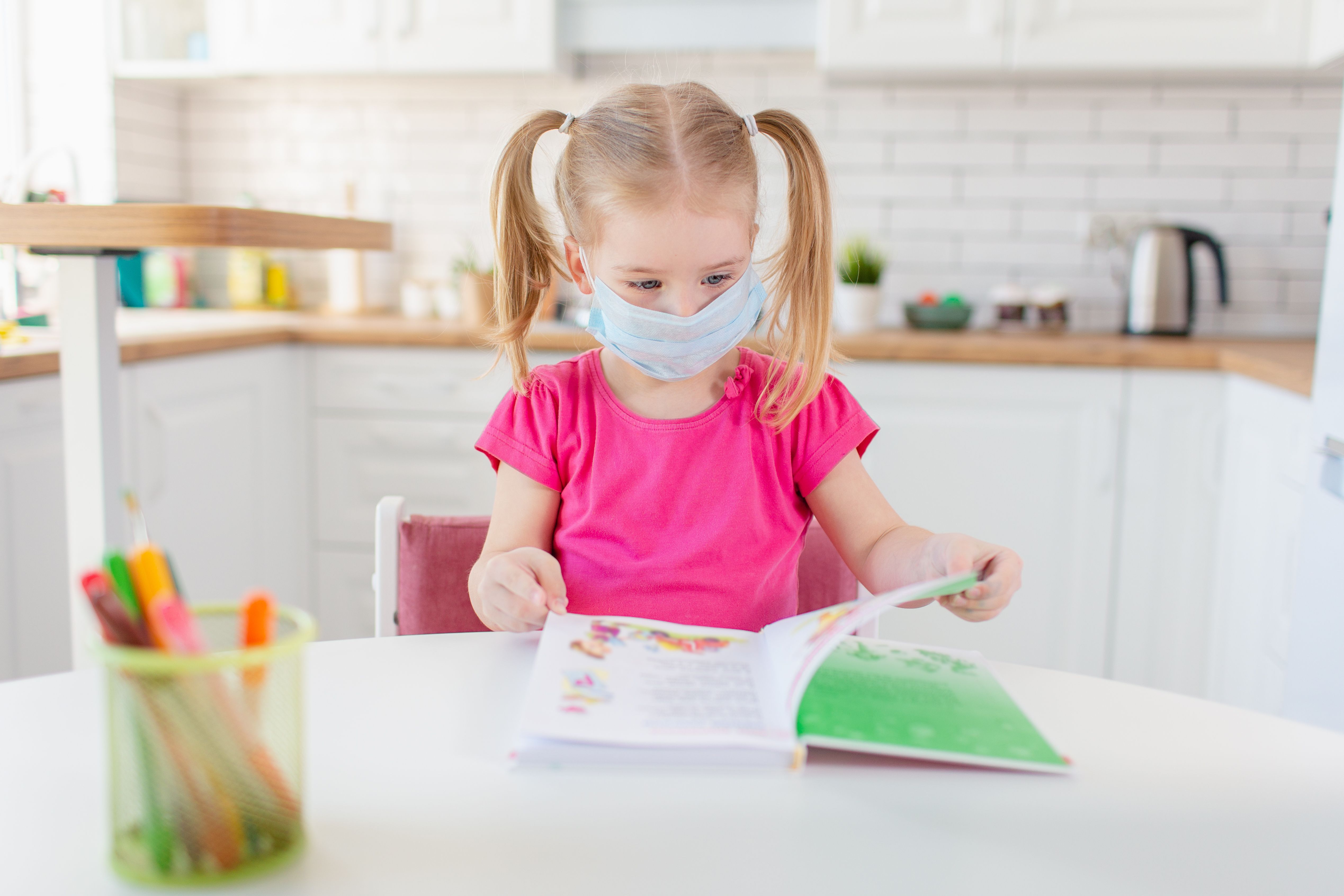Pediatric immunocompromised hosts: a glimpse into the future
At IDWeek 2023, a presenter discusses the future of infection prevention from organ transplants in children.
Little blonde girl wearing medical protective face mask: © Olga-stock.adobe.com

Pediatric care, particularly for the immunocompromised child, is an area of medicine that continues to evolve at an unprecedented pace. As more and sicker children are receiving transplants, increased complexity demands a deeper understanding of the relationship between the prevention of allograft rejection and infection.
At IDWeek 2023, Hayley Gans, MD, professor at Stanford University, Stanford, California, and an expert in pediatric infectious diseases for immunocompromised hosts, offered attendees considerations for the future with “Hot topics in pediatric immune compromised hosts: publications that should change your practice.”
In the first year following solid organ transplant, more than half of these pediatric patients face infections. This is in part due to the difficulty in titrating the net state of immunosuppression to an individualized setpoint with pathogen-agnostic biomarkers that only globally assess immunological function.
The future, as Gans envisions, rests on refined thresholds for humoral or cellular markers, as well as continued work on functional biomarkers like T cell adenosine triphosphate (ATP) activation, T cell interferon gamma release, virus-specific T cell levels, or transcriptomic signatures.
From a treatment perspective, Gans also spoke to the transformative potential of bacteriophages – “the most diverse and abundant biological entities on the planet.” The human gut virome is dominated by bacteriophages, which specifically infect bacteria for reproduction. In addition to having a predictive ability for the composition and function of bacterial communities, phages in other cases show treatment potential. For the enteric pathogen Clostridioides difficile, studies suggest that prophages may affect toxin expression, and other work indicates that phage lytic infection may synergize with antibiotic therapies.
But what about prevention? For a growing population of long-term transplant survivors, Gans also focused on a sobering reality that many pediatric patients are not fully vaccinated at the time of transplantation. While guidelines support post-transplant live virus vaccination in select transplant patients, a survey of liver transplant patients revealed that only 29% of centers administered these vaccines.
In another study involving two institutions who gave live virus vaccinations to liver transplant recipients on single agent immunosuppression one year after transplant without recent rejection or steroids, among 132 varicella and 137 measles/mumps/rubella vaccinations, there were minimal adverse events, only 7 varicella infections, and no differences in rejection.
Drawing from Gans's expert view, it’s evident that the frontier of pediatric care for immunocompromised hosts is destined to shift toward a personalized approach. With precision prevention, detection, and treatment advances offering hope for safer, more effective outcomes, the medical community is poised to see an increase in the number of successful transplants for our most vulnerable patients.
Reference
Gans, H. Hot topics in pediatric immune compromised hosts: publications that should change your practice. IDWeek 2023. October 13, 2023. Boston, Massachusetts.